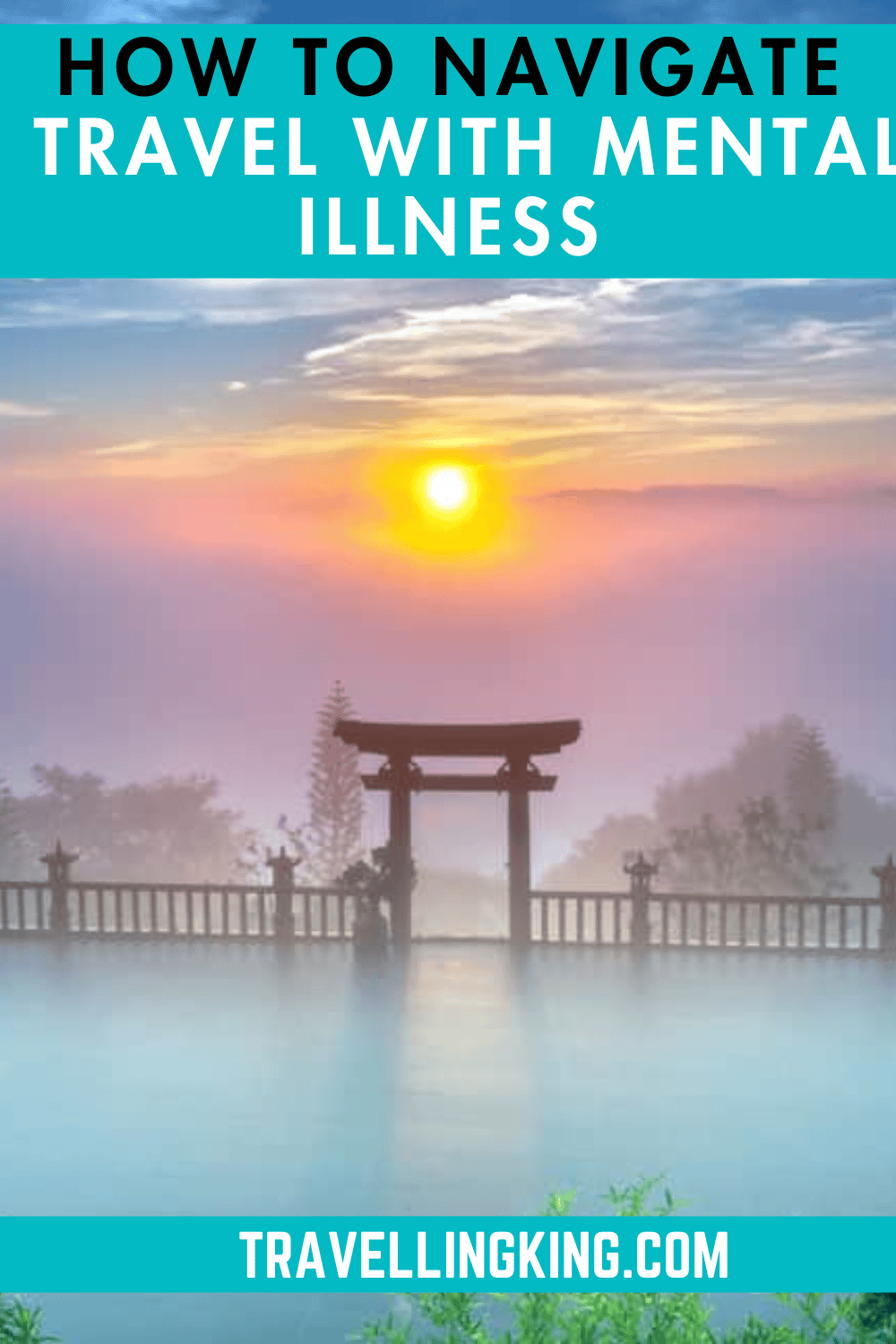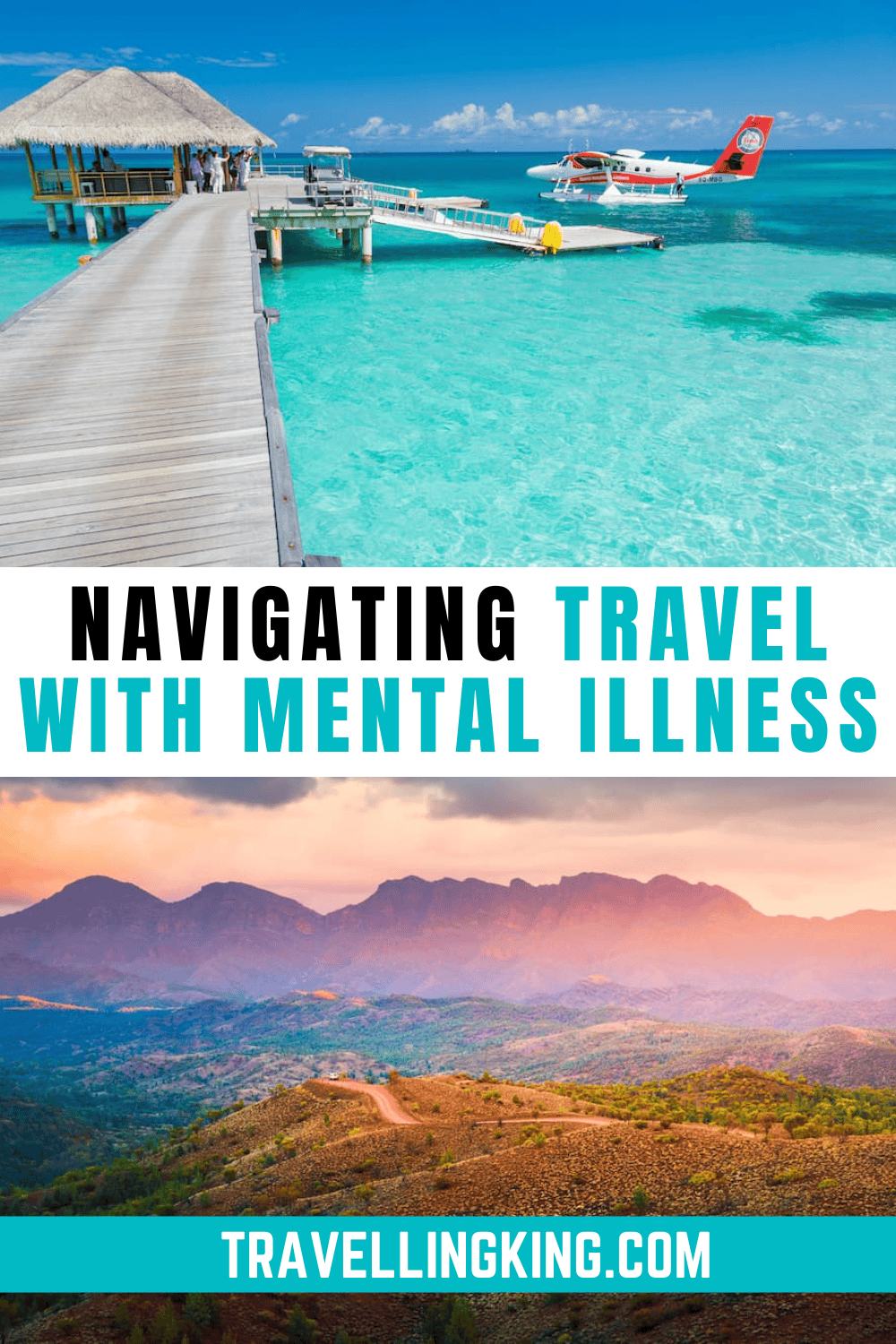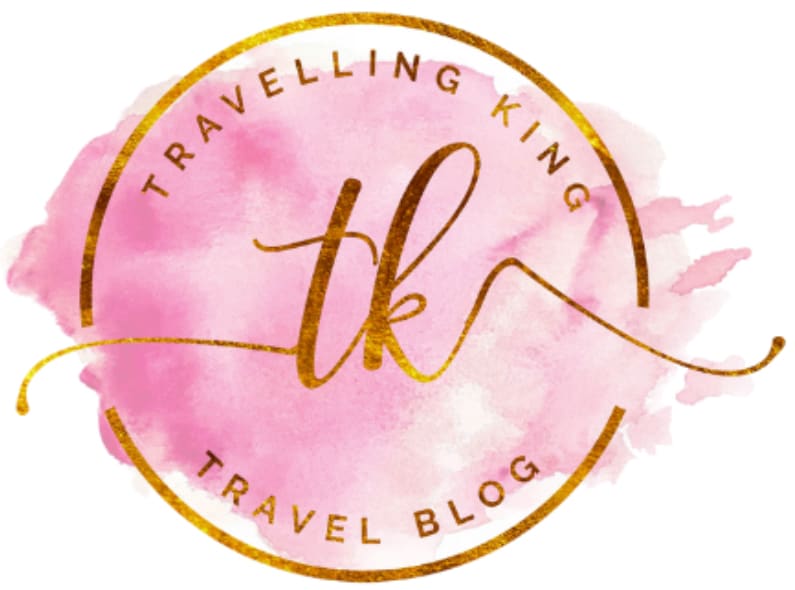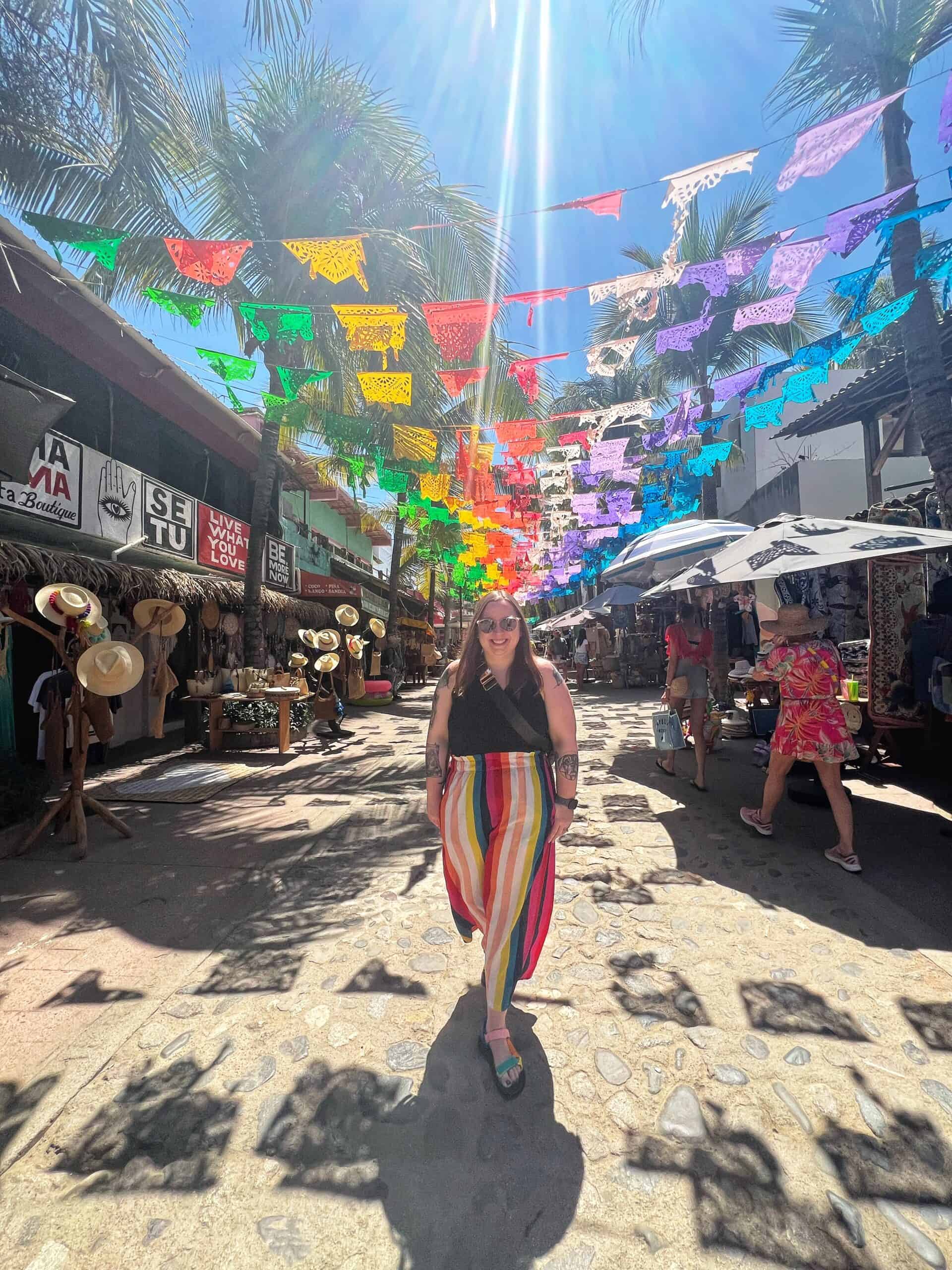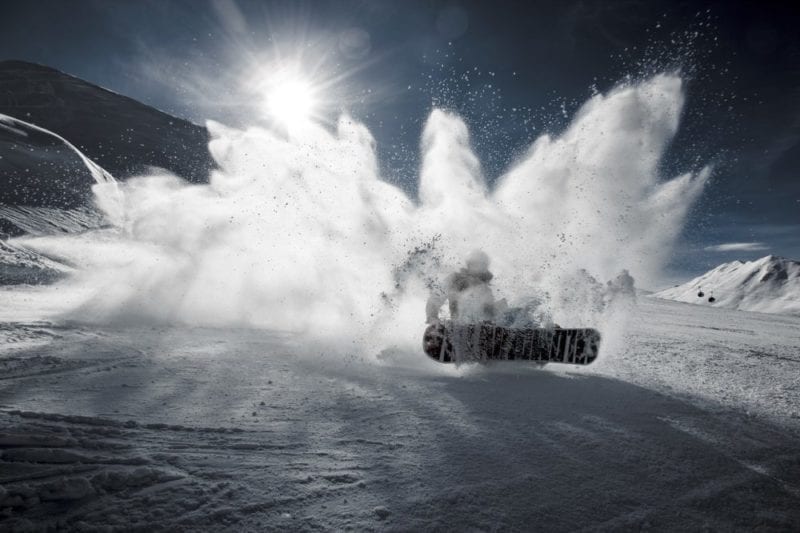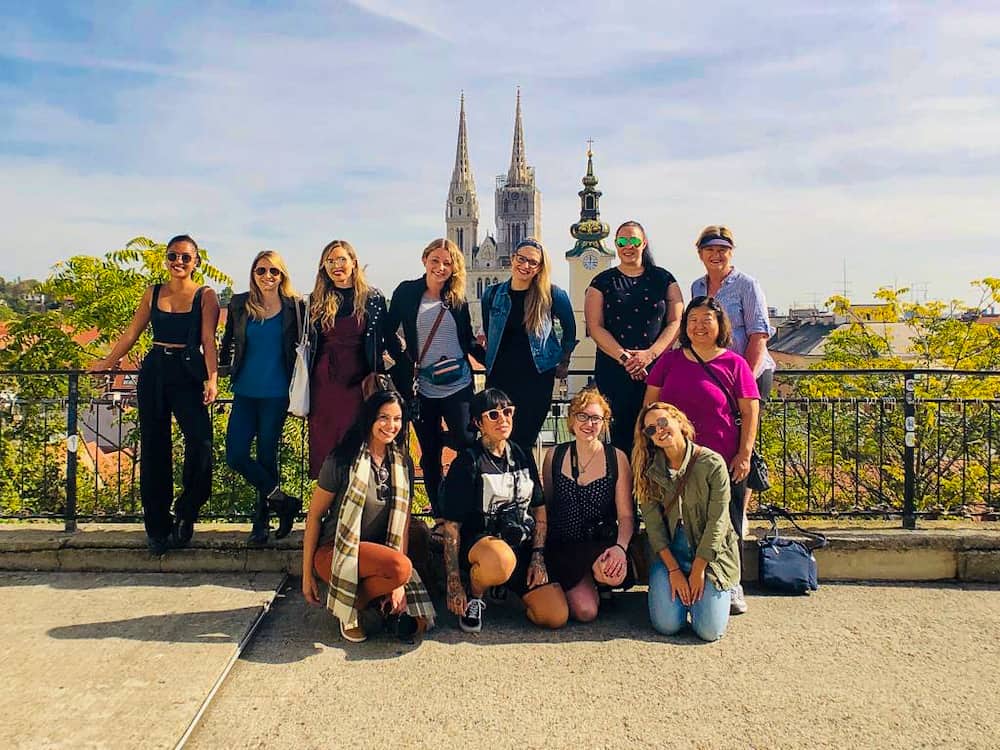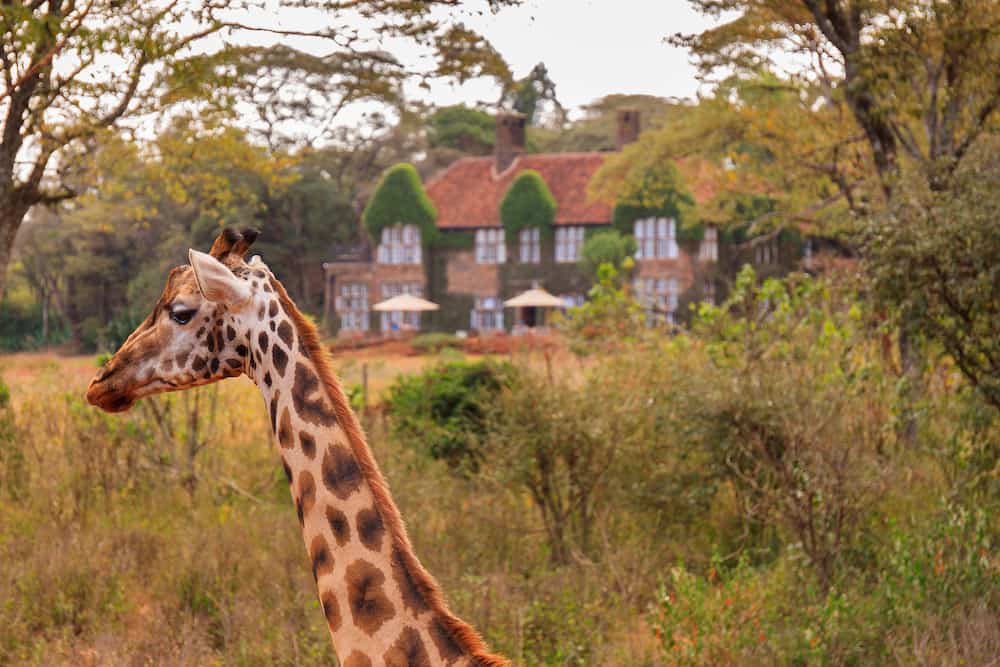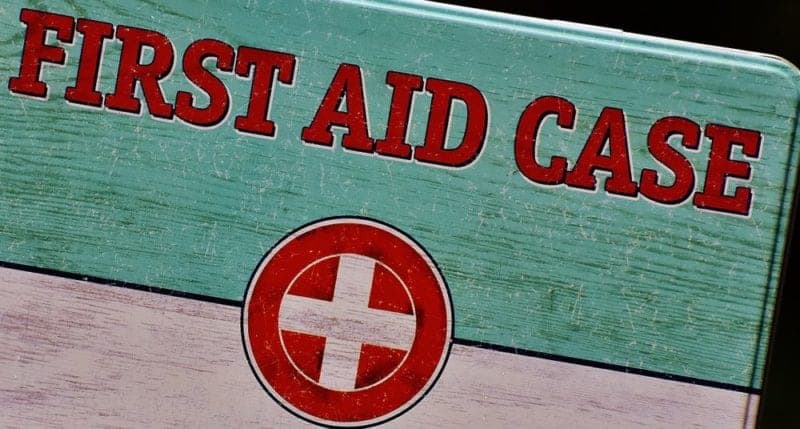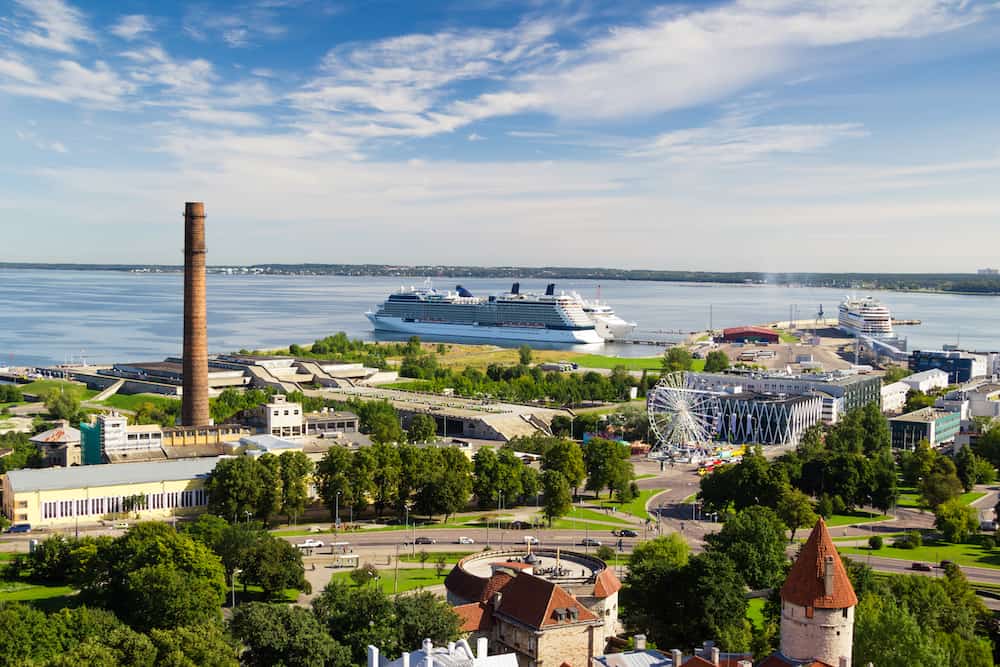Tripped: Navigating Travel with Mental Illness
Amanda: Traveling is one of the great joys of my life. It invigorates me in ways nothing else does, but it also takes a significant toll on my mental health. That’s because I am one of the 13% of people in the world living day to day with a mental illness. As a late-diagnosed ADHD-er (probably more like AuDHD), I spent the first three decades of my life coping with everyday occurrences, blissfully unaware that they weren’t as hard for other people as they were for me.
Anxiety, depression, mood swings, and lack of motivation have plagued me for my entire life. Although I’m on track now, thanks to medication, therapy, and understanding of how my unique brain works, travel kickstarts these feelings back into gear – particularly my need for a schedule and sticking to it. That’s why I jumped at the opportunity when Sam asked me to help with this article.
Having a mental illness does not have to be a barrier to travel. Although the industry is not built to serve those of us who identify as neurodivergent or atypical, know that you aren’t alone. There are ways we can see the world and still be kind to the individual needs of our incredible minds, bodies, and spirits.
I hope our honesty and that of the fellow travelers who shared their experiences with us inspire your sense of adventure. Only by sharing our experiences can we help each other not feel so alone.
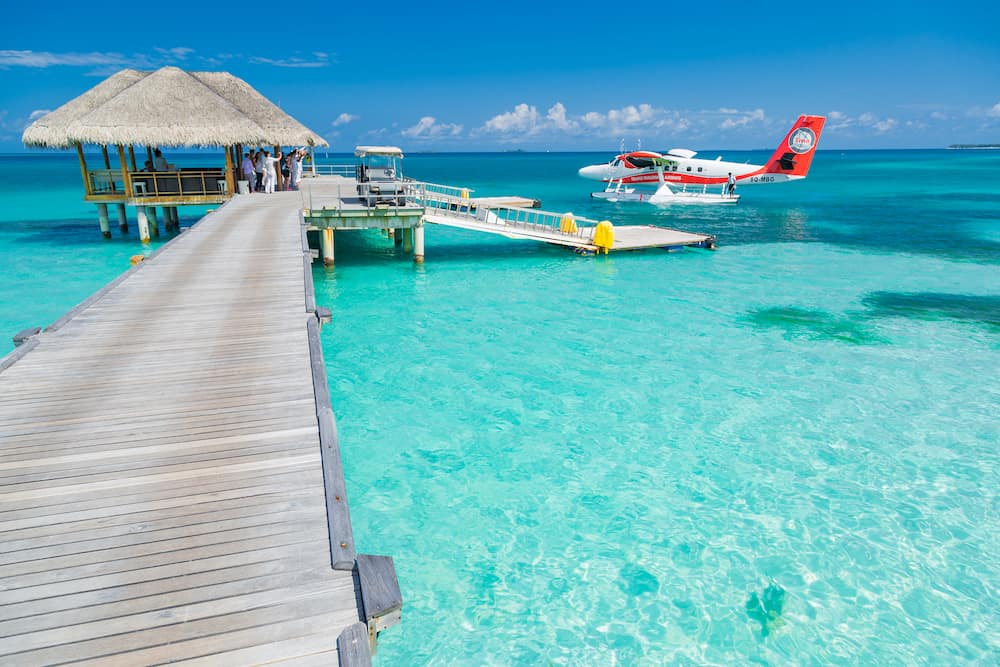
Sam: Much like Amanda, I was diagnosed with ADHD (but as a child), I’ve lived a life with a very full on and at times confusing brain. Adding ADHD to my recent diagnosis of CPTSD and anxiety, my love of travel has gone from something I had truly given my whole heart to, to something that I fear.
While my CPTSD diagnosis was recent, it’s likely been something I’ve had for most of my life. After an incident last year, I started to experience anxiety for the first time in my 30 odd years of life, leaving the house had been a struggle for me. With therapy, Christianity and my passion for travel, I’m learning how to step outside of my anxiety and explore the world again.
As Amanda mentioned above, I really hope that this article can shed some light on travelling with different mental health issues and how to overcome them without feeling overwhelmed. You are NOT alone.
Plan your trip?
Avoid hidden fees in the exchange rate while withdrawing from millions of ATMs abroad, paying in restaurants and shops, and buying your accommodation and flights using the Wise Card. You can hold up to 40+ currencies at once to spend in in over 150 countries, and convert them in real time with the free Wise app.
Need help planning your trip from start to finish? Check out these helpful links:
- Cheap flights
- Savings on accommodation from hostels to luxury hotels
- Affordable car rental options
- Affordable sightseeing tours and day trips
- Travel Adapter – All in one so you don’t have to carry a bunch around
- Don’t be silly and forget Travel Insurance! Get hurt and you’ll regret it…
This post contains some affiliate links for your convenience. Click here to read my full disclosure policy. You can also read our content/editorial policy here.
“Once, in Northern Ireland, I got utterly lost,” explained Phoenyx of Phoenyx Travels, who lives with a severe traumatic brain injury, PTSD, and anxiety. “My rented GPS failed me at the border traveling from Dublin to Northern Ireland, and my terrible map-reading skills didn’t help. I asked locals for directions, sometimes misled, sometimes helped. The real adventure began when I ended up surrounded by cows and sheep in a farmer’s field, trapped by farm animals and overwhelmed.
A kind farmer tapped on my window. I was a mess, sobbing, until I calmed down with some deep breaths. He guided me on my way, which I finally wrote down (my short-term memory is tricky). Exhausted but relieved, I reached my B&B at 2 AM. That experience taught me the value of writing things down and the power of a deep breath in a tough spot.”
Whether you are a neurotypical or neurodivergent traveler, something is bound to go wrong somewhere in your adventure. But when you’re already battling a sense of dread or anxiety of a worst-case scenario, anything going wrong can be enough to stop you in your tracks. Over time, we learn the different ways we need to navigate life when challenges come our way. Still, in the moment, it can be paralyzing.
It can be in those moments that neurodivergent folks write off traveling entirely. Yet I urge you not to give up on that wanderlust. That moment of helplessness can sometimes lead to the greatest experiences of your life.
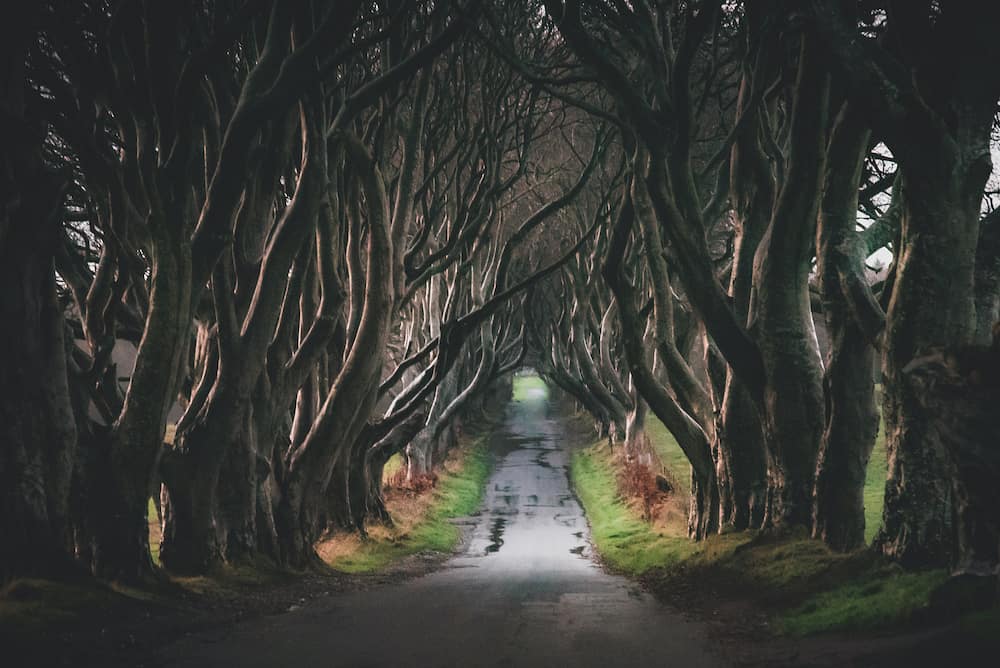
Lessons Learned and How We Cope
So as not to generalize the neurodivergent community, I’ll say that for myself, a lot of my coping mechanisms were hard-won lessons. Anytime I’m out in public spaces or with people for too long, my social meter runs out. And when it is depleted, I hit an irreconcilable wall. I become exhausted and irritable, and my anxiety becomes impossible to manage. As an avid traveler, I’ve also learned that being in a new place (or even just a different place I’ve been before) depletes my energy even faster.
When I don’t manage that anxiety, I nosedive. I get nauseous, restless, and I can’t sleep. I’ve lost several days over the course of many trips to exhaustion. I’ve learned not to be afraid of sleep aids when I need them, alone time when I’m overwhelmed, to drink more water on the road than at home, and the importance of always having a small snack on hand.
We can’t halt unexpected challenges in their tracks, though we can devise a plan to keep them (and our anxieties) at bay. Like Phoenyx, who mentioned keeping notes to remember things like directions, there are steps we can take to proactively avoid tripping our triggers.
Jodi from The Fat Girl Hiking, who lives with anxiety/depression/panic attacks, for instance, knows that one of her major triggers is transportation-based. She knows that flying and crowded highways trigger her anxiety. To avoid a bad situation while she’s traveling, Jodi simply avoids both of those modes of transportation whenever she can. Or, if she can’t avoid a highway, she’ll have a companion to help with the driving if she needs a break.
Whereas Lynne, a late-diagnosed ADHD-er like myself, struggles dually with both being alone and partaking in crowded events. Since group events like a party or concert can trip her anxiety, Lynne has learned that one of the best things she can do for herself in any tense situation is to know when she needs a break.
“I’ve found it’s important to allow myself some downtime if I need a beat, and not feel guilty about being cooped up in my hotel room for a few hours if needed,” she explained. “I use breathing exercises to self-regulate if I start feeling an anxiety attack bubbling up, such as counting my breaths in through the nose and out through pursed lips while exhaling for longer than I inhale. For example, I might inhale for [four] counts and exhale for [six], depending on how difficult it is for me to breathe. It also helps me to use feedback, like putting my hands on my ribcage so that I can feel the expansion as I breathe in and contraction when I breathe out.”
Phoenyx also relies on a self-preservation method – kindness to oneself in times of travel trouble. A recognition that it is okay to pivot plans and struggle to overcome challenges. One way she alleviates trip anxiety is to know everything about her destination and itinerary beforehand. That said, Phoenyx also recognizes that we can’t always be at the wheel.
“Don’t stress over what you can’t control,” she advises. “Remembering the quote, ‘Worrying means you suffer twice,’ has been a game-changer for me. It reminds me not to let pre-trip worries magnify my challenges.”

Pack for Preservation
Preparing for travel doesn’t stop when you begin the drive or take-off. It is a battle built on consistency. Even so, there are several things you can pack to help alleviate potential roadblocks. Having a self-care arsenal, even if you don’t use it, always helps my anxiety when I’m traveling.
I also highly recommend looking into specific laws related to any medication you may take before planning a trip. For instance, my ADHD medication (and all stimulant-based medications) is illegal in Japan. So, while it is my dream to visit, I will need to plan to take extra care of myself when I visit.
My Recommendations:
- Lavender essential oil or CBD roll-on: I personally love the Wellness Roll On Gel – Relief Blend from Mellow Fellow.
- Melatonin gummies: (pro-tip) Try the five mg over 10 mg if you don’t take sleep aids often or are sensitive to them, as it’s less likely to leave you groggy in the morning. Always consult a doctor before introducing supplements that may interact with your medications.
- An ice roller: If you have access to a fridge or freezer, an ice roller can make all the difference when your anxiety spikes. The cold helps relax you by impacting your parasympathetic nervous system and is especially good for anxiety attacks. An ice cube also works in a pinch.
- A small fidget: I’m a fidgeter, especially when my anxiety is high. I frequently bring something like a squeeze ball to keep my hands busy if I get nervous or frustrated when traveling.
Phoenyx’s Recommendations:
- The Headspace or Calm App(s) “for quick mindfulness sessions.”
- A Journal: This is “essential for me to jot down thoughts and feelings.”
- “A list of emergency contacts, including a mental health professional, for peace of mind.”
- Weighted Blanket: “It’s a comforting piece of home that helps me feel secure and calm wherever I am. Pro tip: If you wear it on the plane, it doesn’t count as the weight for your carry-on luggage.”
Lynne’s Recommendations:
- Sleep necessities: Travel pillow, sleep mask, and her medication.
- Sony Noise Canceling Headphones: “I’ve been really surprised by how much they help me feel calm during travel, and get some rest on long flights or bus rides. Just always remember to keep some awareness of your surroundings when cutting noise, and have your valuables on your person.”
- Girls Love Travel and/or Bumble: “[They’ve] has helped me meet great people while traveling solo. Both the dating and friend options on Bumble have given me many unique opportunities to meet people and explore in different ways while traveling. For me, these ways of meeting people feel less anxiety-inducing than approaching people in person.”
- A SIM card to stay in touch with loved ones or medical professionals
- Downloaded comfort music/movies/shows
Jodi’s Recommendations:
- The I Am app: “Having motivational quotes to read really helps me and gives me something to focus on aside from the anxiety.”
- Paper maps: “I always carry paper maps. They provide another great distraction for me.”
- Hiking shoes: “The one thing you find with me at all times is my hiking shoes! Getting out in nature is great for your mental health.”
- A book or audio book
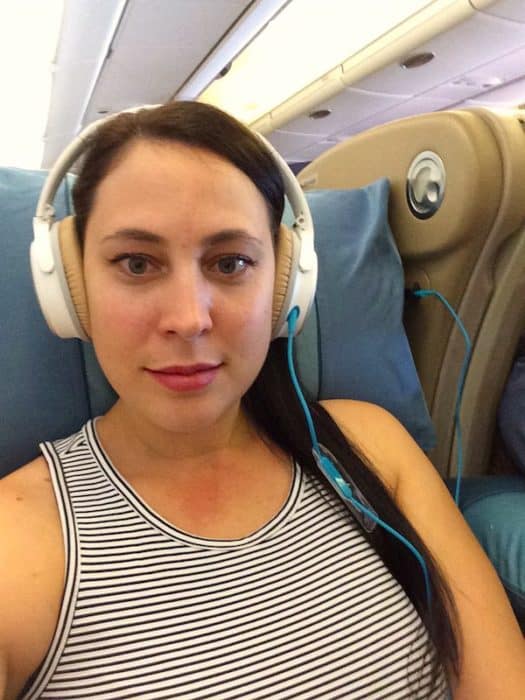
Know There Is Always a Way
Although social media makes it seem like the only travel worth doing is in far-off places that are extravagant and totally new, that’s not all that travel is. Traveling is all about experiencing something whether it’s two or two thousand miles away, is irrelevant. What matters is that you are getting an encounter that’s new to you or one that is not part of your day-to-day. Setting realistic expectations of ourselves is half the battle in travel for anyone, but particularly for those of us who are neurodivergent.
“If you have anxiety and are hesitant to travel, I recommend starting with short trips to places that are not too far away,” Jodi advises. “There is nothing wrong with a one-night getaway. You can make a conscious effort to learn what your triggers might be if you don’t already know and you can build your confidence on short trips.
Talk to a loved one about it and see if they will go with you. To help build myself up, I will do a mother/daughter weekend a couple [of] hours from home. If that is too much for you, spend some time visiting neighboring towns for the day. When my anxiety is at its highest, I will plan a trip to a nearby town for the day. You don’t have to travel far to discover new things.”
Phoenyx concurs, explaining that traveling doesn’t have to be done at anyone else’s pace except your own. She emphasizes the importance of knowing yourself and seeing mental health illnesses/issues as something other than a barrier. Further, she adds that utilizing your everyday tools to help navigate travel can help you “not just to live but thrive” and that “travel could even become a part of your journey in overcoming these hurdles.”
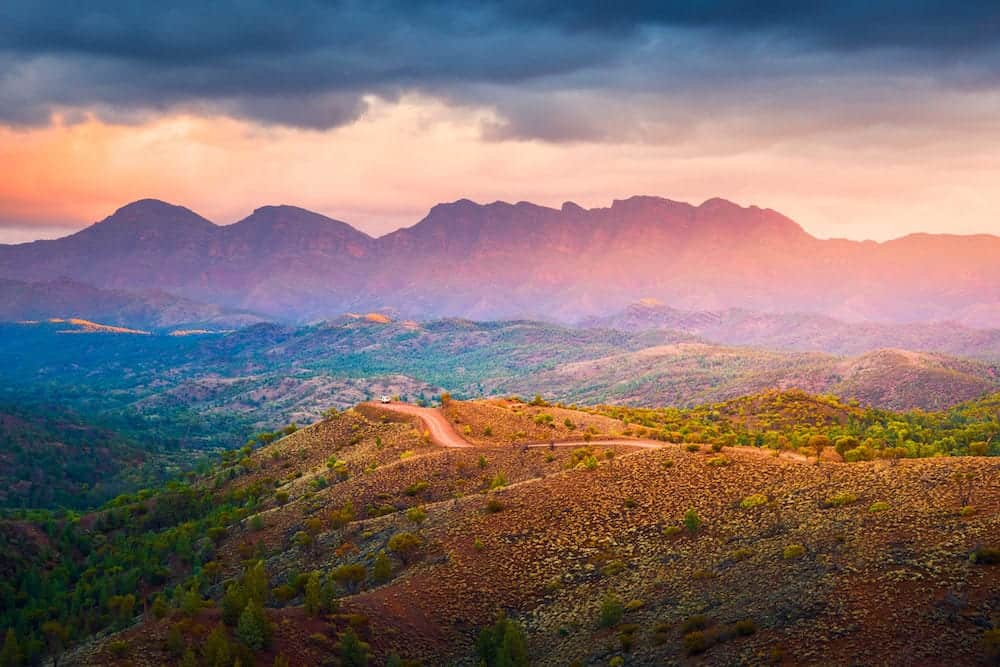
As far as mental illness is concerned, Lynne from Travelynne says that traveling isn’t going to cure it. Though to both her point and Phoenyx’s, seeing the world and how different folks live in it can be a stepping stone to living more fully.
Something to remember is that we can’t be everything all at once. If your mental health has prevented you from traveling, don’t hop on the first 15-hour flight to a country completely different from your own. Start small. Travel is a journey, not a marathon. Even for the most accomplished travelers it is an exhaustive search for something new.
Take it from one of my heroes, the late, great traveler Anthony Bourdain. Bourdain lived with depression and wasn’t afraid to tell the world that travel can’t be a cure-all, but it is important. My favorite quote of his captures this sentiment:
“Travel isn’t always pretty. It isn’t always comfortable. Sometimes it hurts, it even breaks your heart. But that’s okay. The journey changes you; it should change you. It leaves marks on your memory, on your consciousness, on your heart, and on your body. You take something with you. Hopefully, you leave something good behind.”
